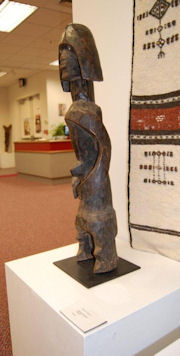by James A. Bacon
Virginia Union University (VUU), a historically black university tracing its founding to the end of the Civil War, has been publicly sanctioned by its accrediting agency for non-compliance with financial and financial-aid standards. The Southern Association of Colleges and Schools’ Commission on Colleges (SACS), cited deficiencies in control over financial resources and funded/sponsored research and programs, reports the Times-Dispatch.
The news follows an SACS decision to terminate accreditation for Saint Paul’s College, a historically black college based in Lawrenceville.
Here’s the big question: Are these troubles merely anecdotal or do they indicate broader woes faced by traditional colleges and universities in the face of runaway tuition and increasing competition from non-traditional enterprises?
One could argue that these citations reflect mainly the woes of historically black colleges and universities (HBCUs), which were founded to educate African-Americans during decades of rigid segregation in Virginia and throughout the South. As long as they enjoyed a captive market, so to speak, these institutions survived. But when segregation ended, they had to compete with larger, better-funded and more prestigious public and private universities for a finite pool of black college-bound students. Thus, according to this line of logic, the problems of HBCUs are unique to HBCUs, not to higher education generally.
I would argue that, as the most vulnerable institutions, HBCUs are simply the first to experience the mounting consumer backlash against rising prices. They cater to a demographic that is lower-income on average and more dependent upon financial aid than the population as a whole. Accordingly, they have less pricing power — ability to raise tuition and fees — than other institutions at at time that students and their families are rebelling against the unaffordable cost of a college degree.
The State Council for Higher Education in Virginia (SCHEV) compares tuition, fees, room and board for public colleges. Virginia Union is a private college, so it is not included in the comparison. However, Virginia’s two public HBCUs — Virginia State University (VSU) and Norfolk State University (NSU) — are included. And it turns out that they charge the lowest tuitions in the state, save at Radford University and two-year Richard Bland College.
Virginia’s flagship institution, the University of Virginia, charged $20,600 in 2011-12, according to SCHEV’s “2011-12 Full-Time Resident Undergraduate Student Charges.” Moving down the scale, Virginia Commonwealth University charged $18,200. By contrast, VSU charged $16,000 and NSU only $14,600. Of course, those institutions also benefited from state support amounting to $8,400 per student in 2008-2009.
Richmond-based Virginia Union charged $22,200 for the 2011-2102 year. As a sign of the institution’s lack of pricing power, VUU is keeping charges flat in 2012-2013. Read the strategic plan and see how much the administration is focused on cost control, from curtailing health-care and energy expenditures to engaging in bulk purchasing and establishing tighter audit controls.
Here’s what I would predict for the next few years: While the most prestigious colleges and universities may have the pricing power to continue raising tuition and fees, though at a more restrained rate than in the past, less prestigious institutions will not — especially those that cater to a lower-income market. The financial vice will continue to tighten. As these institutions struggle, accrediting agencies will sanction them more and more.
The age of austerity — it’s an ugly, painful thing. But it often takes pain to drive transformative change.



